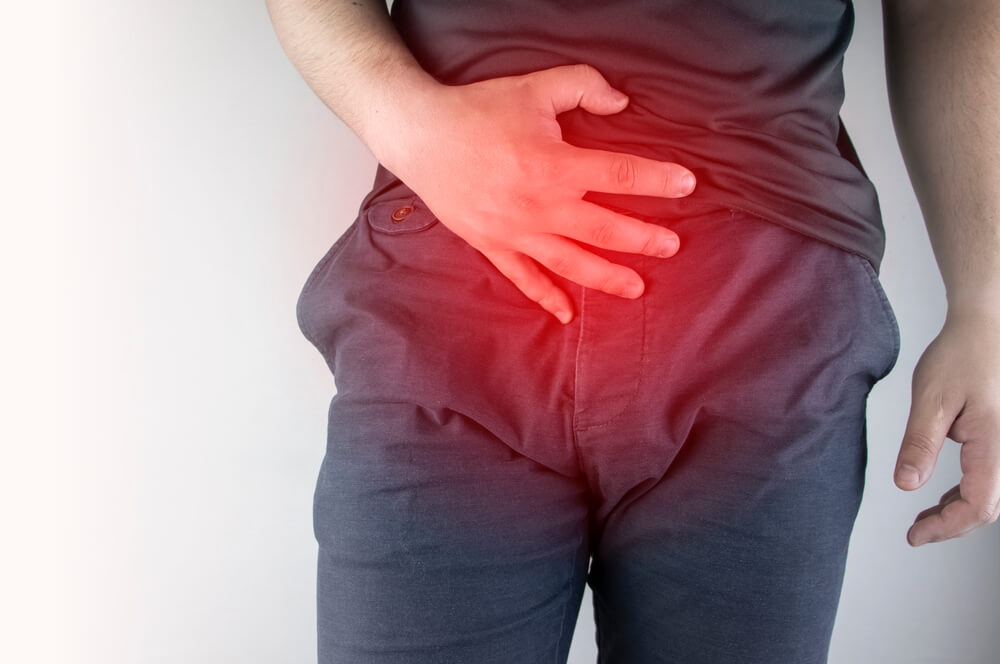If you witness a bulge in the groin region causing you pain and discomfort, you may have an inguinal hernia. Although it’s more common in men, a hernia in the groin as a female can also occur, and the risks are typically more severe. In this article, you’ll learn about hernia in the groin as a female who is at risk of developing an inguinal hernia, causes, and potential treatment methods. You’ll also read about strangulated hernia symptoms and whether you can get a hernia from coughing.
Before starting this article, we encourage you to seek professional guidance and assistance, especially if you have postponed your inguinal hernia appointments. If you’re looking for a skilled professional and you’re in the area, we recommend hemorrhoid treatment in Wellington, Fl.
So, when to worry about hernia pain? What are your treatment options and the diagnosis? Read on to find out.
Definition of Inguinal Hernia
In brief, an inguinal hernia refers to the bulging of the abdomen’s contents through the lower abdominal wall. This condition happens due to the weakening of the muscles in this region.
To understand this better, consider the following. Inside the lower abdomen, you have three layers that protect your intestines. The first layer is the peritoneum, a thin membrane. The second constitutes of abdominal muscles, while the third is the skin. If the intestines and the first layer (peritoneum) push through your muscles, they create a bulge under the skin, resulting in an inguinal hernia. This is a dangerous condition because it can get bigger, and the intestines may get trapped in the bulge, losing adequate blood supply. Patients with this degree of the condition have a strangulated inguinal hernia and may require surgery.
In the sections below, we’ll list some of the common strangulated hernia symptoms to keep in mind. But, remember, if you have any concerns and questions, consult a professional right away. Reaching out to specialists at Advanced Surgical Physicians is an excellent option.
Inguinal Hernia Types

Before understanding when to worry about hernia pain, let’s see the two types of inguinal hernias. These include direct inguinal hernia and indirect inguinal hernia.
A direct inguinal hernia happens due to the weakening of the abdominal muscles, and it is more common among adult patients. These types of hernias only occur in males.
On the other hand, an indirect inguinal hernia is the most frequently diagnosed type of inguinal hernia and the type you might be born with. Both genders can have this condition, but a hernia in the groin as a female is less common. In women, indirect inguinal hernia usually happens when the small intestines or the reproductive organs slide into the groin area due to abdominal muscle weakness.
As mentioned before, a hernia in the groin as a female raises more complications, and experts almost always recommend surgical repair post-diagnosis.
Who’s at Risk of an Inguinal Hernia?
Certain age groups are at an increased risk of suffering from an inguinal hernia. The chances of having this condition increase with age among adult patients, making inguinal hernia more common among patients between 75 and 80. Children and infants are also at risk, but the percentage of these younger patients is lower.
Moreover, you may be at risk of an inguinal hernia if you:
- Have a family history of the condition
- If you have a low BMI (or body mass index)
- if you have connective tissue disorder
- If you lift heavy weights
- If you are pregnant (pregnancy may put pressure on your abdomen)
- If you have a chronic cough
Yes, you can develop a hernia from coughing. If you can, always avoid heavy coughing, as the act puts stress on the abdomen. One of the most prevalent causes of chronic coughing is smoking. If you want to prevent getting a hernia from coughing, try to quit smoking before the cough worsens and the condition appears.
Common Inguinal Hernia Symptoms
If you have a noticeable bulge in the groin area, you likely have an inguinal hernia. Here are some other common symptoms if you suspect you have a hernia in the groin as a female:
- A visible bulge in the general area of the pubic bone or on either of its sides
- An aching or burning feeling at the bulge
- Discomfort or pain in the groin, especially when lifting, coughing, or bending over
- Dragging sensation in the groin
As mentioned, you might have a more severe condition or a strangulated hernia. In that case, here are some strangulated hernia symptoms to check out:
- Fever
- Redness or severe pain
- Vomiting and nausea
- Rapid heart rate
- Pain that doesn’t go away and gets worse
Some people may also experience strangulated hernia symptoms such as the inability to pass gas or move the bowels. You may also feel a sudden and sharp pain that intensifies rapidly.
Possible Complications of an Inguinal Hernia
Inguinal hernias are no laughing matter, as they can become incarcerated or stuck, meaning the hernia’s contents that create the bulge cannot be “returned” inside the patient’s abdominal wall. If the patient’s hernia is stuck outside the abdominal wall, it can be strangulated. Due to blood flow lack, the tissues in the hernia will die. The patient is also at risk of intestinal obstruction.
When Should You See a Specialist?
You may wonder when to worry about hernia pain? When do you need expert help? We recommend frequent medical checkups to stop any condition in its tracks. However, if you already suspect an inguinal hernia, the best time to see a specialist is “as soon as you can.” Always seek immediate help from a healthcare provider if your hernia bulge becomes purple, red, or dark or if you witness any symptoms and signs of a strangulated hernia.
The answer to “when to worry about hernia pain” is simple. You have a reason for concern if the pain persists and it gets worse. We advise you to seek out medical help as soon as you notice a visible bulge in the groin area.
Possible Treatment Methods for Inguinal Hernia

If you have an inguinal hernia, the good news is that you have options for treatment. Your healthcare provider will advise you on the best treatment method for you, based on the hernia’s size, overall health, age, and medical history. Two main types of surgeries exist: open hernia surgery and laparoscopic hernia surgery. If you undergo open hernia surgery, your surgeon will cut the groin to locate and repair the hernia. After doing this, the surgeon will close the abdominal wall with stitches and mesh. Usually, patients receive a sedative and local anesthesia. In some instances, professionals will administer a spinal block or general anesthesia.
On the other hand, laparoscopic hernia surgery involves the surgeon using a tool to locate and repair the hernia. This procedure also involves making tiny cuts in the lower abdomen. Usually, the recovery time after the second surgery type is shorter.
Give Us a Call Today
Finding a reliable clinic with trained professionals can be challenging, but we bear some good news! Our team of specialists with years of experience guarantee only the best results for you and your loved ones. Why put your health on the line by waiting? Book your first appointment today!







